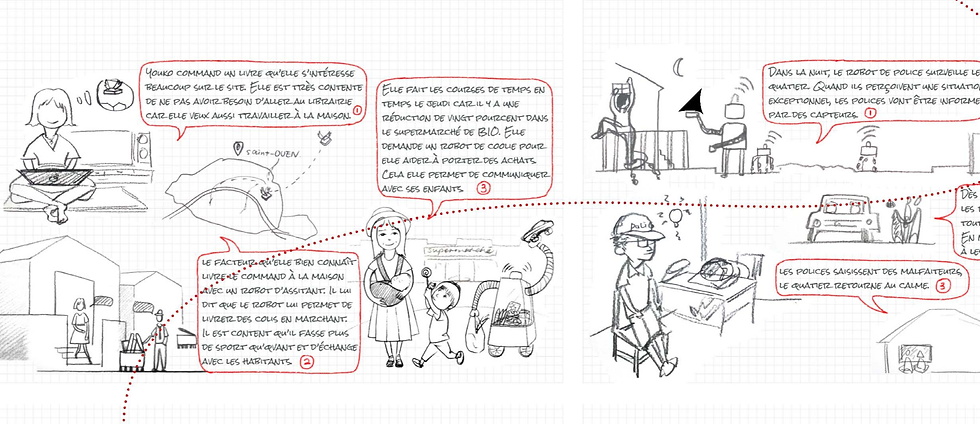
Urban Pixel — Rehumanizing Cities through Robotic Urban Furniture
Urban Pixel is a design research project exploring how robotic systems can help rehumanize urban life by enhancing social connectedness and civic participation.
Set in the context of increasing automation and social fragmentation, the project examines how public spaces and urban services could evolve to support empathy, conviviality, and inclusivity within future smart cities.
Through field research and urban ethnography in Nantes, France, the study identified three major challenges: declining public interaction, unequal access to shared space, and the emotional distance created by digital urban systems.
Urban Pixel responds by proposing a modular robotic ecosystem that acts as a dynamic layer of urban infrastructure. Rather than replacing human presence, the system provides adaptive “pixels”—mobile, sensor-driven modules that can temporarily reorganize public space according to social needs and temporal rhythms.
In this system, robotic modules emerge when and where people gather: during community events, lunch breaks, or evening markets. They form pop-up environments that offer light, seating, greenery, or energy access—creating spontaneous opportunities for social encounters and civic activity.
Each reconfiguration becomes an act of urban empathy, where technology mediates rather than dictates interaction.
By rethinking the role of robotics in the city, Urban Pixel envisions a future where machines contribute to the warmth and adaptability of public life, transforming smart cities into human cities.


